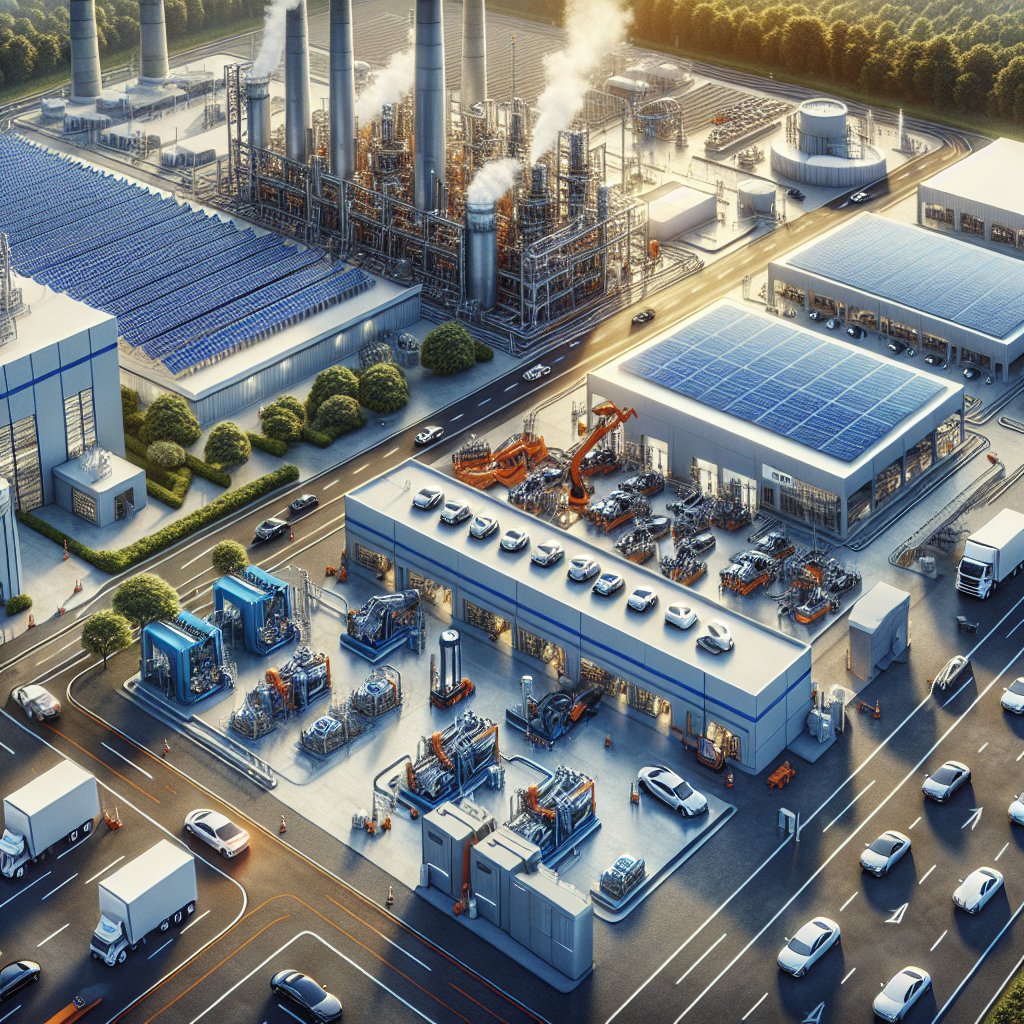
Major manufacturers across the globe are investing heavily in new production facilities and factory transformations to meet rising demand for renewable energy technologies and alternative fuel vehicles. From solar panel production in the United States to hydrogen fuel cell manufacturing in South Korea and electric vehicle assembly in Vietnam, companies are committing billions to expand their manufacturing footprints. These capacity expansions reflect growing confidence in the transition toward cleaner energy sources and zero-emission transportation, with facilities designed to significantly boost output in the coming years. The investments demonstrate how manufacturers are positioning themselves to capitalize on policy support and consumer demand for sustainable technologies.
First Solar, the largest solar panel manufacturer in the United States, announced plans to construct a new 3.7 gigawatt factory dedicated to producing cadmium telluride (CdTe) solar cell technology, according to [1]. This expansion represents a substantial increase in the company's domestic manufacturing capacity and underscores the growing demand for American-made solar panels. The facility will focus on CdTe technology, which First Solar has championed as an efficient and cost-effective alternative to traditional silicon-based solar cells. The announcement was also covered by [2], highlighting the significance of this investment for the domestic clean energy manufacturing sector.
In South Korea, Hyundai Motor Company has broken ground on a cutting-edge hydrogen fuel cell production facility in Ulsan, according to [3]. The state-of-the-art plant represents Hyundai's commitment to hydrogen as a key component of future mobility solutions. This facility will enable the automaker to scale up production of fuel cell systems for both passenger vehicles and commercial applications, positioning the company as a leader in hydrogen technology development. The Ulsan location leverages South Korea's existing automotive manufacturing infrastructure and expertise.
Meanwhile in Vietnam, VinFast has completed a comprehensive transformation of its Hai Phong manufacturing facility, marking a significant milestone in the company's automotive evolution. A first-hand account published by [4] describes how the factory has been successfully retooled to support the Vietnamese automaker's electric vehicle ambitions. The completed transformation demonstrates VinFast's ability to rapidly adapt its manufacturing capabilities to meet the demands of EV production, including battery integration, electric powertrain assembly, and modern quality control systems.
These parallel investments across different regions and technology sectors illustrate a broader trend in manufacturing strategy. Companies are not simply expanding existing operations but are making targeted investments in specific technologies they believe will define the future energy and transportation landscape. The scale of these projects—from multi-gigawatt solar facilities to dedicated hydrogen production plants—suggests manufacturers anticipate sustained long-term demand for clean energy solutions and are willing to commit substantial capital to secure their market positions.








